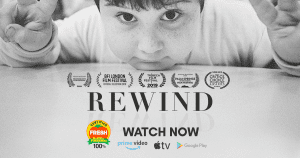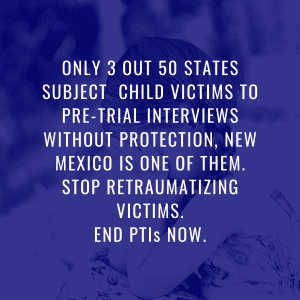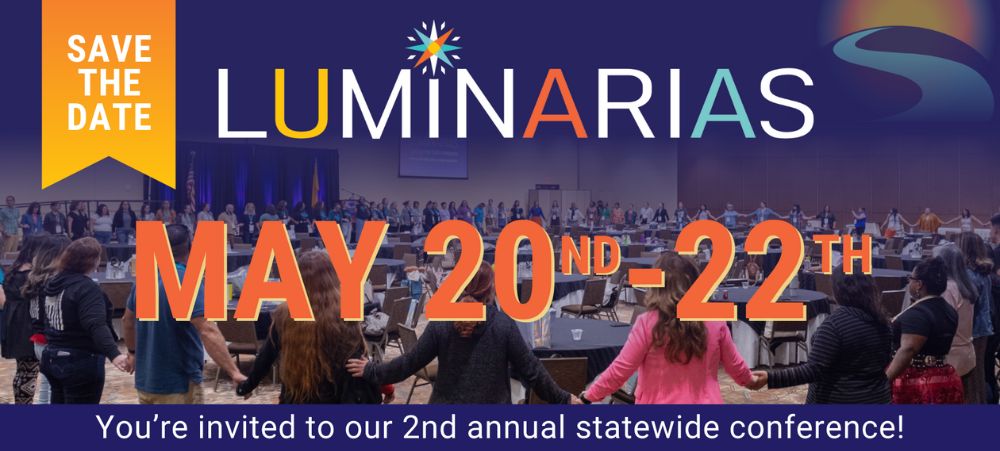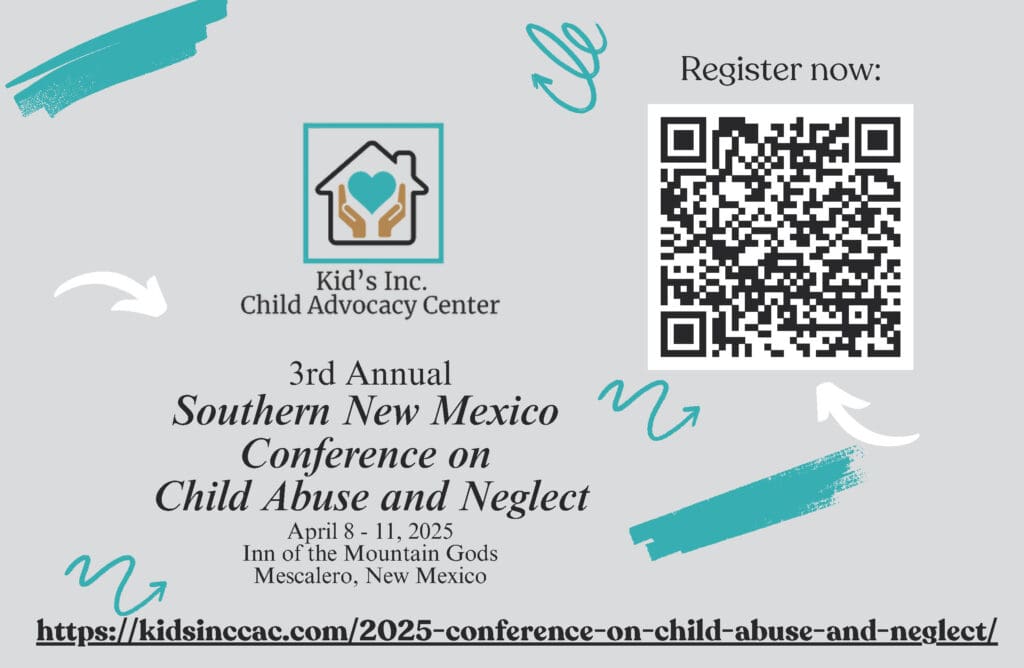Date: Tuesday, May 20th – Thursday, May 22nd
Time: 9:00 am – 4:45 pm (Final day 9:00 am – 11:30 am)
Location: Isleta Resort & Casino, Isleta 11000 Broadway Blvd SE, Albuquerque, NM 87105
¡Regístrese por Luminarias, la conferencia estatal sobre agresión sexual de la NMCSAP!
Fecha: Martes, 20 de mayo – jueves, 22 de mayo
Hora: 9:00 am – 4:45 pm (último día 9:00 am – 11:30 am)
Lugar: Isleta Resort & Casino, Isleta 11000 Broadway Blvd SE, Albuquerque, NM 87105
Call for Proposals
Do you have a proposal that offers attendees tools for addressing the root causes of violence, building meaningful partnerships, or creatively preventing and responding to sexual violence? We want to hear from you!
Presenters receive an honorarium and reimbursement for hotel & travel
Submit Proposals by: February 7th
↓ ↓ ↓
FREE VIRTUAL TRAINING
presented by Dr. Carol Brusca
12 p.m. – 1 p.m. via Zoom
This training is provided by the New Mexico Coalition of Sexual Assault Programs, Inc.
with funding from the National Children’s Alliance, NM CYFD, and the New Mexico Crime Victims Reparation Commission.
September 2023
This fall, we are partnering with Zero Abuse Project to provide high quality, nationally recognized virtual training at no cost to CACs and their multi-disciplinary team partners between September 6th and November 29th. Designed with CAC/MDT professionals in mind to share best practices, register through our Coalition Manager platform here.
March 2023
We are in full swing with the New Mexico Legislative session! Check out the link on our home page to sign up for legislative update emails and see below about a bill that would help reduce trauma for kids who have been abused.
July 22, 2021
THE VOCA FIX ACT HAS BEEN SIGNED BY THE PRESIDENT!
Learn more here.
FREE ONLINE WORKSHOP – JUNE 17, 2021 10 a.m. – noon
Register here.
Laura van Dernoot Lipsky is the founder and director of The Trauma Stewardship Institute and author of Trauma Stewardship and The Age of Overwhelm. Widely recognized as a pioneer in the field of trauma exposure, she has worked locally, nationally, and internationally for more than three decades. Much of her work is being invited to assist in the aftermath of community catastrophes – whether they are fatal storms or mass shootings. Simultaneously, she has long been active in community organizing and movements for social and environmental justice and has taught on issues surrounding systematic oppression, structural supremacy, and liberation theory. Laura is on the advisory board of ZGiRLS, an organization that supports young girls in sports. She is a founding member of the International Transformational Resilience Network, which supports the development of capacity to address climate change. Laura also served as an associate producer of the award-winning film A Lot Like You, and was given a Yo! Mama award in recognition of her work as a community-activist mother.
This training and discussion will offer practical tools to help us sustain, individually and collectively, in the face of trauma, secondary trauma and overwhelm. Whether this is related to our work, our personal lives, the pandemic, systematic oppression and structural supremacy surfacing in exceedingly painful ways, or the unfolding of the climate crisis, we will discuss what the consequences are as well as strategies for sustaining ourselves and each other.
Trauma Stewardship Training Registration Flyer
***********************************************************
Free Online Panel Discussion of “REWIND” documentary on Monday April 19th at 6 p.m. MDT on the NMCSAP Facebook page (view recording)

Digging through the vast collection of his father’s home videos, a young man reconstructs the unthinkable story of his boyhood and exposes a long-kept secret passed through generations.
For a free private link to view the film, click here.
Free Virtual training: Recognizing and Managing the Effects of Vicarious Trauma
Date: Friday, April 23
Time: 9 am – 12 pm
Who the training is for: Victim Services Professionals
This training will focus on the consequences of working with other people’s trauma and how this can impact the helping professional. There will be a discussion of how to notice the symptoms of vicarious trauma as well as tips and tools to use to mitigate the effects of others’ trauma, and the importance of self-compassion and self-care. We will also touch on the impact the COVID 19 pandemic has had not only on our working lives, but our home lives as well.
Carol S. Brusca is a licensed Marriage and Family Therapist, National Wellness Trainer and a Certified Clinical Trauma Professional.
Register here.
White House Proclamation on Child Abuse Prevention Month 2021
March 18, 2021 – UPDATE on #VOCAFix
The House of Representatives voted to pass the VOCA Fix Act (HR 1652) with overwhelming bipartisan support on March 17, 2021! The Senate version of the bill, S. 611, will be considered soon — please contact your Senators them to support S. 611 to fix the Victims of Crime Act to help crime victims across New Mexico and the U.S.!
Scroll down for the contact information for Senators Heinrich and Luján and make your voice heard today.
March 5, 2021 – UPDATE on #VOCAFix
Action Alert: Call on Congress to Fix VOCA Now!
On Thursday, March 4th, Senators Durbin (D-IL), Graham (R-SC), Baldwin (D-WI), Grassley (R-IA), Feinstein (D-CA), Cornyn (R-TX), Klobuchar (D-MN), and Murkowski (R-AK) and Representatives Nadler (D-NY-10), Fitzpatrick (R-PA-1), Jackson Lee (D-TX-18), Wagner (R-MO-2), Scanlon (D-PA-5), McMorris Rodgers (R-WA-5), Dingell (D-MI-12), and Moolenaar (R-MI-4) introduced the bipartisan, bicameral VOCA Fix to Sustain the Crime Victims Fund Act of 2021 (“the VOCA Fix Act”). This critical legislation will prevent devastating cuts to federal funding for victim service programs through the Victims of Crime Act (“VOCA”), including programs serving victims and survivors of child abuse, sexual assault, domestic violence, trafficking, drunk driving, assault, homicide, and other crimes
The situation is dire! Federal grants to victim services through the Victims of Crime Act (VOCA) decreased by 35% last year on top of a 25% decrease the previous year, and further drastic cuts are expected, because the non-taxpayer-funded pool of funding VOCA grants are pulled from is running dry. Congress can fix this by ensuring federal financial penalties from deferred prosecution and non-prosecution agreements are treated the same way as penalties resulting from criminal convictions – that they go to serve and compensate crime victims. And that’s exactly what the VOCA Fix Act does!
*ALL* OF NEW MEXICO’S CHILDREN’S ADVOCACY CENTERS RELY ON VOCA FUNDS TO SERVE CHILD ABUSE VICTIMS AND THEIR FAMILIES.
In addition to the fix to increase deposits into the VOCA fund, the VOCA Fix Act also:
· Requires state VOCA Administrators to waive the 20% match requirement for victim service subgrantees for the pendency of the COVID-19 crisis and one additional year;
· Allows state VOCA Administrators to waive subgrantee match requirements at their discretion after the aforementioned waiver expires and require state VOCA Administrators to develop and publish a policy and procedure for obtaining a waiver;
· Allows states to request a no-cost extension from the Attorney General, as allowed for other Department of Justice formula grant programs, to ensure states can thoughtfully and effectively distribute victim service grants without being penalized; and
· Provides flexibility for state compensation programs to waive the requirement to promote victim cooperation with law enforcement if good cause is established by the program.
More than 1,680 organizations and government agencies signed a letter urging Congress to pass the VOCA Fix Act, and we need your help to make sure Congress gets the job done!
We have 2 action alerts/call to action:
1. Call/email your US Representatives and urge them to cosponsor and vote yes on the VOCA Fix to Sustain the Crime Victims Fund Act (“the VOCA Fix Act”) when it comes to up for a suspension vote on in the coming weeks.
2. Call/email your US Senators and urge them to cosponsor and vote yes for passage of VOCA Fix to Sustain the Crime Victims Fund Act (“the VOCA Fix Act”).
In New Mexico, see below for ways to contact your elected officials:
| Senator Ben Ray Luján | Senator Martin Heinrich |
| https://www.lujan.senate.gov | https://www.heinrich.senate.gov/contact/write-martin |
| Dirksen Senate Office Building | 303 Hart Senate Office Building |
| Suite B40C | Washington, D.C. 20510 |
| Washington, DC 20510 | p: (202) 224-5521 |
| Phone: 202-224-6621 | f: (202) 228-2841 |
| Rep. Deb Haaland | Rep. Teresa Leger Fdz | Rep. Yvette Herrell |
| https://haaland.house.gov | https://fernandez.house.gov/contact | https://herrell.house.gov/contact |
|
1421 Longworth HOB
|
1432 Longworth House Office Building
|
1305 Longworth House Office Building
|
|
Washington, DC 20515
|
Washington, DC 20515 |
Washington, DC 20515 |
| (202) 225-6316 | Phone: (202) 225-6190 | Phone: (202) 225-2365 |
|
Fax: (202) 226-1528
|
Fax: (202) 225-9599
|
|
FREE TRAINING in March 2021!
To register for one or both sessions:
https://dev.nmcsap.org/event/free-training-opportunities-workshops-for-nm-child-advocacy/
This 2.5 hour online training focuses on the impact of trauma, secondary traumatic stress (STS), and organizational approaches to addressing STS (e.g. Reflective Supervision).
The objectives are as follows:
- Provide an overview of trauma types, trauma responses, and how trauma impacts children.
- Discuss the effect that trauma exposure has on workers by discussing secondary traumatic stress (STS).
- Review approaches to addressing STS with both individual strategies and organizational strategies (e.g. Reflective Supervision).
- Demonstrate how Reflective Supervision can be used with staff by utilizing reflective listening, emotion-focused questions, supervisor modeling, and compassion satisfaction prompts.
The training is delivered via Zoom and will be tailored to the audience based on their roles within the Multi-Disciplinary Team (MDT) and their current knowledge level.
While the learning objectives remain the same within each presentation, the focus of the presentation will change based upon the audience. The first, “The Impact of Trauma on Children & Families and Secondary Traumatic Stress in MDT Professionals” focuses more attention on trauma and its impact and secondary traumatic stress with an overview of reflective supervision and its uses within the systems represented in the MDT. The second, “Reflective Practice and Secondary Traumatic Stress in CACs and MDTs” will include a review of impact of trauma with additional focus on learning the skills to provide reflective supervision to staff in audiences that are made up of those with supervisory capacity.
March 2021 CAC Trauma Training Flyer
To learn more about the presenters, read their bios here:
Trauma-informed Care Training Bios
New Mexico Legislative Session 2021 is here!
UPDATE (3.1.21): Although it passed out of its first committee and there is passionate support for this effort, it appears that HB143 will not be moving forward during this month’s legislative session. We are committed to continuing to work with decision makers to reform the aspects of the legal process that re-traumatize child abuse victims.
What is New Mexico House Bill 143?

Learn more here:
REDUCING SECONDARY TRAUMA FOR VICTIMS OF CRIME
Find your state legislator here:
https://www.nmlegis.gov/Members/Find_My_Legislator
12.22.20 UPDATE on #VOCAFix:
From the NM Crime Victims Reparation Commission:
As many of you already are already aware, the House and Senate approved the end of year COVID/FY21 package, which did not include the #VOCAFix language. However, the FFY21 VOCA Appropriation was set at $2.015 billion. Yes, this is still a reduction from FFY20, which was $2.65 billion. Our state will still be facing funding cuts with our FFY2023 awards, which begin October 1, 2022, however it will not be as drastic at 77%. Once we learn more from our national partners regarding our state’s estimated allocation, we will share that information.
It is still incredibly important to continue to advocate for the #VOCAFix language. This language is needed to create stability of the crime victim fund over the long term, which would create stability of funds within our state as well. Please continue to educate our Members of Congress about the importance of the #VOCAFix language. Yourvoices were heard, and we avoided major funding cuts. Please continue to contact your Members of Congress to stabilize the crime victim fund.
Some additional information about the bill, (thank you to the NNEDV):
Violence Against Women Act (VAWA)
The bill includes slight increases over FY20 in Transitional housing (+$3 m), Sexual Assault Services Program (+$3 m), Legal Assistance for Victims (+$1 m), Rural Grants (+$1.5m), Youth programs (+$0.5 m), Protections and Services for Disabled Victims (+$0.5 m), and for the Elder Abuse grant program (+$0.5 m).
Family Violence Prevention and Services Act (FVPSA)/other Health and Human Services (HHS) programs
The bill provides an increase of $182.5 million from $175 million in FY20, and maintains an additional $7 million to supplement the tribal set aside. The Rape Prevention and Education programs is $51.75 million and DELTA is $5.5 million.
Housing Programs
The bill provides a slight increase in the “DV bonus” funds at the U.S. Department of Housing and Urban Development, Continuum of Care, Homelessness Assistance Grant program – $52 million in FY21 over $50 million in FY20.
A new incremental rental assistance voucher program is included in the COVID package – funded at $43.4 million – for which survivors who are fleeing or attempting to flee domestic violence, sexual assault, dating violence, or stalking are eligible.
Previous Announcements:
URGENT ACTION ALERT!
You may have heard about the declining balance of the Crime Victims Fund (CVF) and its impact on VOCA (Victims of Crime Act) Victim Assistance and VOCA Compensation awards. NMCA has been partnering with national victim service stakeholders, funders, and advocacy organizations for many years to educate our national leaders about the needed solvency and stability of these funds and the potential impacts for survivors if these issues are not addressed. Below are the potential impacts of these cuts in New Mexico:
- Over 80 organizations including all of our CACs in New Mexico rely on VOCA Victim Assistance funds to provide lifesaving direct services to victims of all types of crime annually.
- With the proposed $1.1 billion cut, New Mexico would face a 77% reduction in VOCA Victim Assistance funds for providers. This proposed legislation has passed the House of Representatives and is currently being proposed to the Senate.
National and state coalitions are encouraging victim service providers to call your Representatives and Senators in Congress today at the numbers below.
Stand up for kids today and tell our Congressional delegates to:
- Not cut $1.1 billion from victim service grants, and
- Ask them to pass the #VOCAFix in the budget deal.
It is important that those who are in leadership positions learn about the impact on victim services within New Mexico, as well as within our individual programs if these VOCA funding cuts continue to move forward. We are grateful to the NM Crime Victims Reparation Commission and others who continue to support many of the national efforts for stabilizing the VOCA funds as listed below.
The proposed legislation in the Omnibus bill which introduces some key changes, referred to as the #VOCAFix that would create stability and solvency in the crime victim fund. The proposed changes include:
- Redirect monetary penalties from federal deferred prosecution and non-prosecution agreements that would otherwise be deposited into the General Treasury into the Crime Victims Fund;
- Increase the federal grant calculation for funding to victim compensation programs from the current 60% to 75% of state-funded payouts; and
- Allow states to request a no-cost extension from the Attorney General, as allowed for other Department of Justice formula grant programs, to ensure states can thoughtfully and effectively distribute victim service grants without being penalized.
- Require state VOCA Administrators to waive the 20% match requirement for victim service subgrantees for the pendency of the COVID-19 crisis and one additional year;
- Allow state VOCA Administrators to waive subgrantee match requirements at their discretion after the aforementioned waiver expires and require state VOCA Administrators to develop and publish a policy and procedure for obtaining a waiver;
- Instruct OVC not to deduct restitution payments recovered by state victim compensation funds when calculating victim compensation awards; and
- Provide flexibility for state compensation programs to waive the requirement to promote victim cooperation with law enforcement.
Current Congressional Delegate Contact Information:
- Senator Tom Udall @SenatorTomUdall
- Santa Fe (505) 988-6511 and Washington DC (202) 224-6621
- Senator Martin Heinrich @MartinHeinrich
- Santa Fe Office (505) 988-6647 and Washington DC Office (202) 224-5521
- Representative Debra Haaland @RepDebHaaland
- Albuquerque (505) 346-6781 and Washington DC (202) 225-6316
- Representative Xochitl Torres Small@RepTorresSmall
- Las Cruces (575) 323-6384 and Washington DC (202) 225-2365
- Representative Ben Ray Lujan @repbenraylujan
- Santa Fe (505) 984-8950 and Washington DC (202) 225-6190
Free Training Opportunities: Four 90-Minute Workshops for Child Advocacy
The New Mexico Coalition of Sexual Assault Programs is conducting a series of online trainings with national trainers from Zero Abuse Project. These online trainings will be held on 11/19, 11/20, 12/3, and 12/8/2020 and will include: Victim Empowerment (11/19 from 1:30 – 3pm), Forensic Interviewing Trafficking/CSEC Victims(11/20 from 12:30 – 2pm), Post-Trial Advocacy (12/3 from 12:30 – 2pm), and Increasing Resilience in Children(12/8 from 9:30 – 11am). Please register for any or all at the link below.
These FREE trainings are designed for NM Children’s Advocacy Center staff and partners. Training sessions will be conducted live. Registrants will be provided login details prior to the training dates.
»Register HERE for any or all of these workshops!
Summary of Trainings:
Thursday 11/19/20 from 1:30 – 3pm
Presenter: Jane Straub, Zero Abuse Project
From Surviving to Thriving: Victim Empowerment
This presentation will discuss ways to engage survivors in your work or agency. Creating a variety of opportunities for survivors to “speak and tell” is vital for engagement. In addition to traditional support groups, demonstrating the potential of healing and hope through stories can lead to empowerment through finding their voice. Other methods of connection and support can occur in safe environments where survivors are learning new skills such as yoga, meditation, breathing, and using creative arts to express their feelings and journey. Through this process of creating relationships within the group, the goal is to have each participant gain the strength and courage to lead an exercise or project and share their expertise. Progress and empowerment are expressed in moving through your story, not being stuck in it.
Objectives:
- Engaging survivors through creative outreach beyond support groups
- Understand ways to create opportunities for survivors share their voice
- Create and share ideas for survivors to learn new skills and share their knowledge or expertise
Friday 11/20/20 from 12:30 – 2pm
Presenter: Rita Farrell, Zero Abuse Project
Shadow Children: Addressing Human Trafficking and Commercial Sexual Exploitation within the Forensic Interview
There is an increased public awareness around the prevalence, impact and salience of sex trafficking, human trafficking and commercial sexual exploitation. When allegations of trafficking and exploitation are made known to law enforcement and social services, the forensic interview process can be an effective tool for gathering victim statements and assessing what has occurred. This training will discuss the specifics of working with victims of trafficking and exploitation and offer guidance for conducting forensic interviews with this population.
Learning Objectives:
- Discuss the prevalence, dynamics and realities of human trafficking and commercial sexual exploitation.
- Provide techniques and strategies for effectively interviewing victims of trafficking and exploitation, through sample language and case examples.
- Offer guidance on how the MDT can best serve victims of trafficking and exploitation.
Thursday 12/3/20 from 12:30 – 2pm
Presenter: Jane Straub, Zero Abuse Project
Post-Trial Advocacy
This is not the end. Once the court makes the decision of Guilty or Not Guilty, the journey of healing for the victim continues. Regardless of the ruling of the court, the victim may experience a wide range of emotions from relief to guilt from calm to fear. Safety planning should remain a priority. Restitution and/or victim compensation needs to be addressed. Victim Impact Statements can have empowering effects on the victim but may also be triggering. The victim needs to understand the procedures of the justice system. After an offender is convicted and sentenced the offender may challenge and appeal the ruling. Each step in the criminal justice system for the victim may seem exhausting, re-victimizing and never ending. This training will take advocates through the justice system and provide examples of support for victims throughout the process. Victim rights, compensation, impact statements, notification, appeals and parole will be discussed in regards to impact on the victim.
Objectives:
- Understand the needs of victims and families beyond the courtroom and verdict
- Increase knowledge of the criminal justice system and identify times and events that may be challenging for clients
- Increase skills to support victims and ensure they receive appropriate notification and reimbursement when warranted
Tuesday 12/8/20 from 9:30 – 11am
Presenter: Jane Straub
From Immunity to Community: Increasing Resilience in Children
Experiences matter. Childhood stress and traumatic events may have a long lasting impact. Fortunately the research shows that resilience, self-regulation and healthy relationships have the power to insulate children against adversity and help them to better handle life’s ups and downs. As a parent, teacher or community member, learn ways to support the children in your life and create a population of healthy and happy youth.
Objectives:
- Brief introduction to the ACE Study and adversity in childhood
- Increase knowledge of resilience and protective factors all youth need
- Take away tools to support children and language to continue this conversation in your own community
This project was supported by Grant No. ALBU-NM-4QIAA20 awarded by the National Children’s Alliance/Department of Justice. The opinions, findings, conclusions, and recommendations expressed in this publication are those of the author(s) and do not necessarily reflect the views of the National Children’s Alliance/Department of Justice.
More news coming soon! In the mean time, check out @nmcacs on Facebook, Instagram, and Twitter for the latest news.


